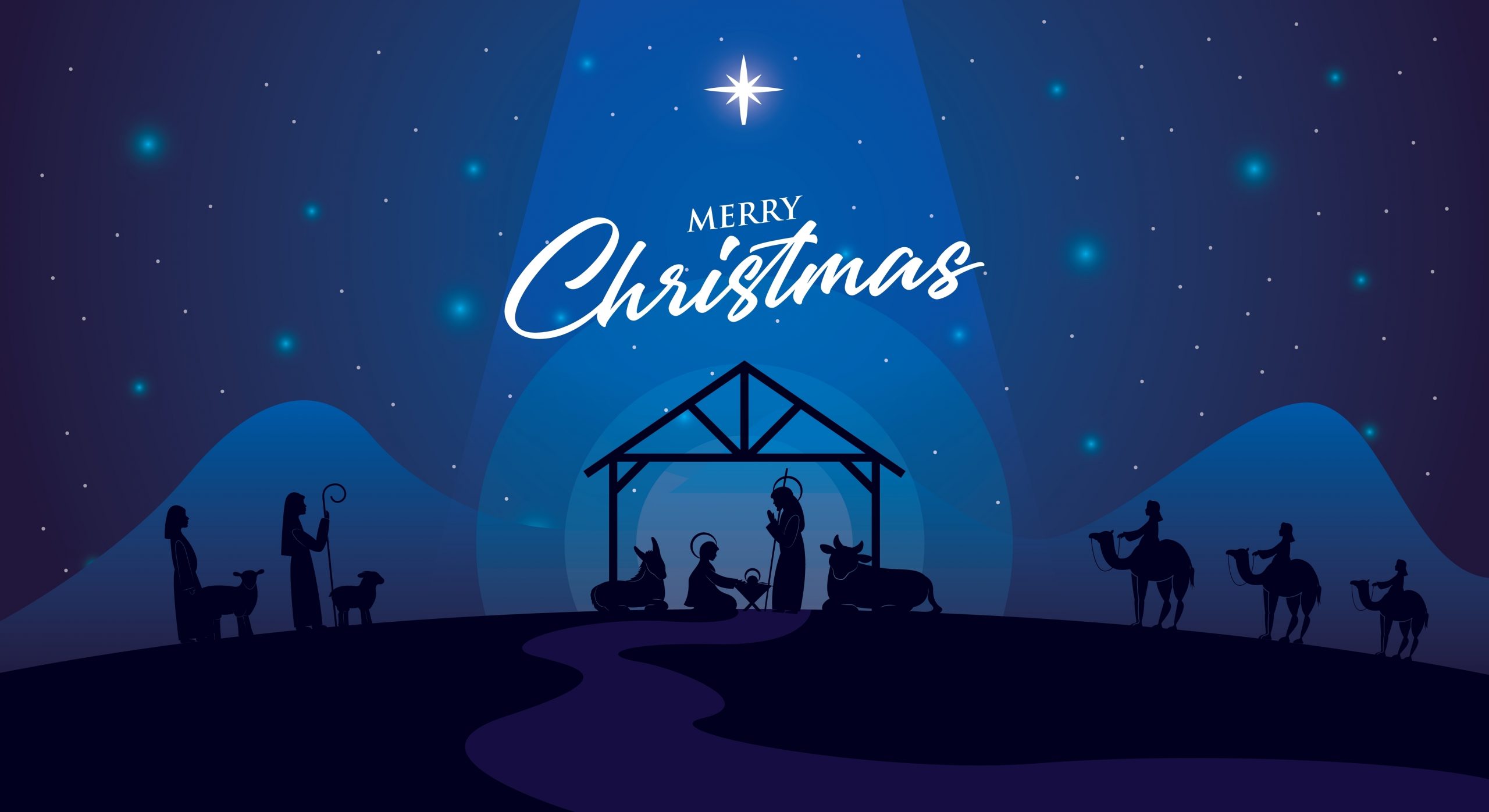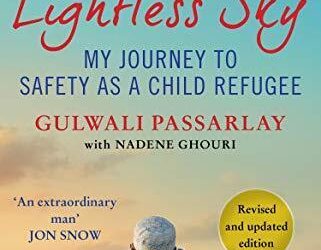Living in the UK, we now have the opportunity to celebrate a beautiful multicultural tapestry of different Christmas traditions, cuisines, decorations and even the naming of Santa Claus that locals, migrants, and refugees now share.
It’s beginning to look a lot like Christmas everywhere you go…
A lovely Christmas song which certainly makes many of us feel nostalgic for our traditional childhood Christmas at home with our family. But what does Christmas really look like to each of us? The answer is a beautiful multicultural tapestry of different traditions, cuisines, decorations and even the naming of Santa Claus that locals, migrants and refugees now share in the UK.
Fun and Games
In this blended world we live in, Christmas is a time for family and cultural traditions, so it is almost impossible to describe how each culture celebrates the festival. What families do in the North of the UK could be entirely different from what families down South do, but you can guarantee there are a few well-known traditions. Nothing says an “English” Christmas like the King’s Speech on Christmas Day, where often dinner is planned around the 3 pm BBC broadcast. This year, for the first time in 70 years, we will not see HM Queen Elizabeth; HM King Charles III will make his first Christmas Day speech to the nation. Christmas trees glittering in houses, Christmas lights in windows, Christmas stockings hanging up in gleeful anticipation, an indulgent turkey dinner, and games and family gatherings are all part of the ritual. Traditionally, the 25th of December is the primary day, with the festivities starting (for some very early!) with children opening their gifts from Father Christmas or Santa Claus, depending on what part of the country you are living.
My memories of my childhood Christmas are singing carols around the Christmas tree, going to the Midnight Service, playing games like Murder in the Dark and the Dictionary Game and finishing lunch in time to watch the Queen’s Speech. My sister always made everyone stand up for the National Anthem. Of course, there were lots of presents and Father Christmas, but I remember the things we did more than the things we gave and received. Teresa
The Return of Christmas
Christmas can be a bittersweet time of the year for many Romanians living at home or here in the UK. For many decades, Romanians were not permitted to “officially” celebrate Christmas as the atheist communist government prohibited it. Today, Romanians uphold their traditional festivities. For countless Romanians who grew up under communism, Christmas will always be associated with the violent revolution in December 1989 against the government, and the tragic death of so many calling for freedom.
The main celebration for Romanians is held on December 25-27, but Christmas Eve is also very important. Christmas trees are decorated, and Santa comes early, with children unwrapping their gifts. Another beautiful and melodic tradition is colindatul or carol singing. Dressed in traditional costumes, children and adults visit towns and villages, asking permission to sing at each house. As everywhere, food plays an integral part in the festivities. For Romanians, pork-based dishes are the main attraction, particularly sarmale, a dish of pickled cabbage leaves filled with a mixture of minced pork and beef.
Romanian families usually prepare significant amounts of food for Christmas dinner. My special Christmas memory is linked to the traditional cake called cozonac, which resembles a marble cake or a panettone. It’s hard labour, and it takes three to five hours to make the dough, but the sweet vanilla smell, the fragrances flooding the homes while the cake was baking and the anticipation of having that as dessert at the Christmas table the next day is a very special time for everyone. I never learnt how to bake cozonac, and is something I really miss at Christmas. A tradition I wish I could keep while living in the UK, but relying momentarily on shop-bought cozonac which is tasty, but lacks the whole preparation in the run-up to Christmas that made it so special.’
Christmas in Romania is a time for families to gather around and eat together, relatives visiting, and children enjoying lots of presents. With a large diaspora, Romanian Christmases usually mean that those who live far away come home to spend time with their parents, friends, and families they left behind. While this is painful for many, as the longing and the joy are entangled in a mix of emotions, being reunited with those close to them reminds them that they are not alone, even if they sometimes feel alienated in their new homes, miles away from their dear ones. It is a time for closeness, warmth, sharing, and a time for generosity. Adina
Christmas Delights
And if you thought decorating a Christmas tree was hard work, then consider our Greek families. While Christmas trees are popular, decorating a boat for Christmas is also important. Traditionally, Greek wives and children would decorate wooden boats to welcome husbands and sons back from the sea, safe from harm. And so, if you visit Greek friends in the UK, don’t be surprised to see brightly decorated Christmas trees and wooden boats.
Carols play another essential role, or rather kalanta. After wishing their neighbours Kala Cristouyenna, or as we say, Merry Christmas (a greeting only used up to the end of Christmas Eve for Greeks), the children are usually rewarded with sweets, dried fruits and small change. A few years ago, a group of Greek children living in the UK sang at a Christmas carol event hosted by the Greek Embassy in London. You can watch the event on YouTube.
I honestly think festivals are a great occasion for indulging in delicious cuisines, for which I am very grateful! We step up for cooking skills for Christmas, and when it comes to sweet delicacies, there is no stopping us. England rests its sweet laurels on Christmas pudding, trifle and mince pies (all delicious), but when it comes to Greeks and baking, the choices are endless sugary delights. The Greeks love to bake melomakarona (gingerbread-like, walnut-topped honey cookies) and kourabiedes (shortbread-like, sugar-coated almond cookies) during the holiday season. These Greek Christmas foods have been a tradition for centuries and are made with the country’s famous local products like oil, oranges, honey and nuts.
However, lovely food aside, the most important element for most people around the Christmas season, across all cultures, is the connection to family, friends, and colleagues.
While I love my home country’s Christmas traditions, it is not so much the traditions that I think about but the human connection. It is the time of year when migrants make a special effort to meet family and friends in person whenever possible. Something even more special after the last few years of just online communications. But whether in my new home in the UK or back with my family, Christmas is a special and magical time of year. Kosta
Los Reyes Magos
For most Spaniards, Christmas is more of a religious event, with many people going to Midnight Mass or La Misa Del Gallo (The Mass of the Rooster) because a rooster is supposed to have crowed the night that Jesus was born.
In Spain and most Latin America and Spanish-speaking countries, Santa Claus comes second place to Los Reyes Magos (The Three Kings) – Melchior, Gaspar and Baltazar, who bring gifts to good children at Christmas time. They also don’t come on Christmas Eve. Instead, towns and cities hold huge Three Kings cabalgatas (parades) on the night of the 5th of January, where the Kings parade through the villages on floats and throw out sweets for the kids. It’s one of the most beautiful Spanish Christmas traditions. When the families return home after the cabalgatas, children leave out their shoes for the Kings to fill with gifts during the night. However, Spanish children today also open a few presents on Christmas day, so if you are visiting with Spanish friends in the UK, don’t forget to bring a small gift for the children. And while turkey may not appear on the Christmas Day menu, there is no shortage of food. The meal traditionally starts with a multitude of tapas, small bites of deliciousness, followed by a regional stew or soup, such as Andalusian stew, Catalan escudella or garlic soup. But this is the meal that never ends, as it is followed by rotisserie meat (especially lamb, suckling pig or Ternasco lamb, if possible, cooked in a woodfire oven) and oven-baked fish, such as bream or sea bass.
There is also a more recent Christmas tradition which is highly anticipated by most Spaniards (one could say more than Santa Claus is anticipated by millions of children around the world), and that is El Gordo. Almost everyone takes part in the Spanish National Lottery at Christmas time, making it the biggest lottery in the world. It’s so big that it is called El Gordo or “the Fat One”, because of the huge cash prizes of more than two billion Euros. People start to buy El Gordo lottery tickets throughout the year, with people buying tickets on behalf of their families living overseas. Perhaps one of the lucky winners could be living in the UK this year.
Being both Spanish and English, I am lucky to enjoy both cultures, and this is particularly fun at Christmas. I usually spend Christmas in the UK with my English family and enjoy the English traditions, including mulled wine and Christmas movies. However, I try to go home every year for Los Reyes Magos as this is an extraordinary occasion in Spain, particularly in Andalucía, where I come from. We always go to the Cabalgata in our town on the evening of the 5th of January, and yes, even now, I put my shoes out in the hope of getting a gift! On the Feast of the Epiphany, we have a lovely family gathering and eat lots of food but always keep room for the Roscón De Reyes, the Spanish Three Kings’ cake my Abuela always used to make. Ana
The True Meaning of Christmas
We can see that the Christmas holiday means something different to everyone. Yet, for every culture celebrating Christmas, this time of year represents love, generosity and sentimental sharing underneath all the different traditions, cuisines, decorations and time frames.
Christmas should be a happy time, but we know it can also be a difficult time of year for many people, especially those of us who miss family at home and abroad. We also know that this year will be very distressing for Ukrainians, with many millions of Ukrainian refugees forced to be apart from family and friends and their own festive traditions and with poignant memories of a very different Christmas only a year ago. And yet, we remain in awe of the persistent strength of the Ukrainian spirit and their declaration that they will celebrate Christmas no matter what. The best Christmas gift we can hope for you is an end to this terrible war and a peaceful new year for Ukraine.
TGIUK would like to wish everyone celebrating this season, especially those who may be celebrating their first Christmas in the UK without their family, a very happy, peaceful time with a hope for peace, health, and love for everyone in the UK and around the world.







